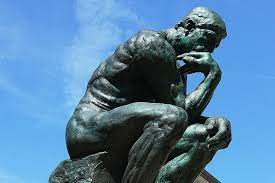
By Jim Heffernan
I’ve been thinking a lot lately about democracy and how it’s working in two countries, my own United States and Ukraine.
I am blessed to have been born in the United States as descendent of Europeans. My life has unfolded very smoothly. Catastrophic wars that raged before my birth were always an ocean away from my homeland.
Popular history tells me that our country began in the early 17th. century as a colony of Britain and by the late 18th century we rejected our colonial status and, for white males, we became a democratic nation. Popular history largely ignores the thousands of people who had been here for millennia when we arrived. The diseases we brought with us killed most of them. Bullets and policies shaped by our inherent greed killed many more. Only remnants of the “first peoples” remain.
For me, democracy has always been a fact of life. Six times I’ve voted for the winner of the presidential election and seven times I’ve voted for the loser. Life has gone on, either way. It is essential to democracy that sometimes your side loses and that you go on from there. Until Donald Trump, there was never any sniveling about who won the election.
Let’s imagine what my life would have been like if I had been born in 1946 in Ukraine instead.
I would have been born in a country with an incredibly ancient history. Ukraine is part of the Pontic-Caspian steppes that stretches from Bulgaria to Kazakhstan. It’s thought that this is the birthplace of the Indo-European branch of languages most of us speak today. It’s also likely that the horse was first domesticated here and where the wheeled cart originated.
I would have been born in a country ravaged by war and under the thumb of the Soviet regime. I would not know what it was like to freely vote for a president until 1991 when I was 45. My early childhood would have been a time of famine. All my life would have been marked by a bleak economic future and a political tug-of-war over whether my country should align with Europe or Russia.
After independence and my first vote, I would see two presidents deposed in revolutions.
First, in 2004, I would see the “Orange Revolution”, where protests about a disputed election led to a repeat election. The second election resulted in a new president and a decided chill in Ukraine/Russian relations.
Next in 2014, I would see the “Maidan Revolution”. This started with furious protests precipitated when the president reneged on promises to work for closer ties with the European Union. When violent repression failed to stop protests, the president fled to Russia, and a new president was elected. Also many of the powers of the president were given over to parliament. Russia reacted by annexing Crimea and supporting a festering civil war on the eastern border of the country.
In 2019, I would vote for our fifth president, Volodymyr Zelensky, a 43-year-old television actor. Zelensky captured 73% of the vote in a country worn down by decades of corruption and repression.
In 2021, war with Russia began in earnest. I don’t know which motivated Russia the most, democracy getting the upper hand in Ukraine or the loss of Donald Trump as an ally. Russia expected its greater numbers would enable its army to roll over Ukrainian resistance easily and make them subjects once again. Events have proven that the Russian military is a bloated body, beset by corruption and incompetence.
There is a saying that declares that “Russia without Ukraine is just a country, Russia with Ukraine is an empire.” Putin is obsessed with restoring the Soviet empire and Ukraine is paying the price.
Putin is a poor student of history. He should know Ukraine has withstood the depredations of Atilla the Hun, Genghis Khan, Adolph Hitler, and Joseph Stalin and they’re still there. By the indiscriminate targeting of their cities, Putin may make them endure a cold winter, but their spirit will not be broken. They will prevail.
(As always, these are just my thoughts. I could be wrong. I welcome discussion at codger917@gmail.com)
Sources: Wikipedia, Britannica, and the books “A Brief History of Ukraine” by Dominic Haynes and “Lessons from the Edge” by Marie Yovanovitch


